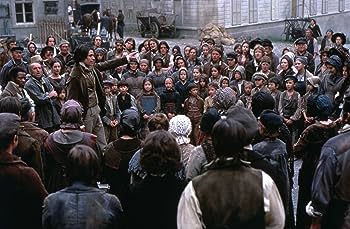Movies famously see multiple perspectives. In theory, the studios are the powerful, but in practice, the actual writing and so forth is usually done by those with limited power. What movies they choose to make will be a balance between those two forces. Which is why it’s interesting that there have been so many movies about revolutions from the perspective of the rebels. We see things that lead us to have a lot more sympathy for the rebels. There are exceptions, but they are few, and there’s even then at least a little of the rebel perspective.
The obvious, of course, is Star Wars. When people agree with the Empire over the Rebel Alliance, we definitely side-eye them. The problem the prequels and sequels had was that they were forced to make us sympathize with the leadership, and the stories weren’t quite sure how to make that work. (Well, one of the problems.) But it’s hardly surprising that one of our greatest sci-fi epics was about a battle with authority and cruel tyranny.
Sometimes, we are able to learn exactly what constitutes tyranny. 1776, for instance, is about the writing of the Declaration of Independence and details exactly what problem the Founding Fathers had with their monarch. They detailed how they had no say over their governance and that their leadership was abdicating responsibility. I was on a podcast this week discussing the Declaration of Independence, and one of the grievances they had was that the Crown wasn’t even doing the bare minimum to keep the colonies running the way they were supposed to.
Even when it’s spoiled little rich kids like a lot of the revolutionary leadership in Les Misérables, we see that there are legitimate grievances. After all, just because Marius is kind of a worthless twink doesn’t mean it isn’t a government that would sentence someone like Jean Valjean to hard labor for stealing bread to steal his starving family—and if the government is such that there would be a starving family, that’s a problem of its own, after all. That, too, is a government abdicating its responsibilities.
Not all movie revolutions succeed, of course. Spartacus dies—that’s just history, after all. You can’t change that fact. But for the entire history of film, Hollywood has let us see why you would be willing to suffer what you have for your cause. One way or another, Spartacus would die, and he chose to die in the hopes of saving others. And that’s what revolution is all about, Charlie Brown!
If you think I’ve kept up my end of the contract, consider supporting my Patreon or Ko-fi!

